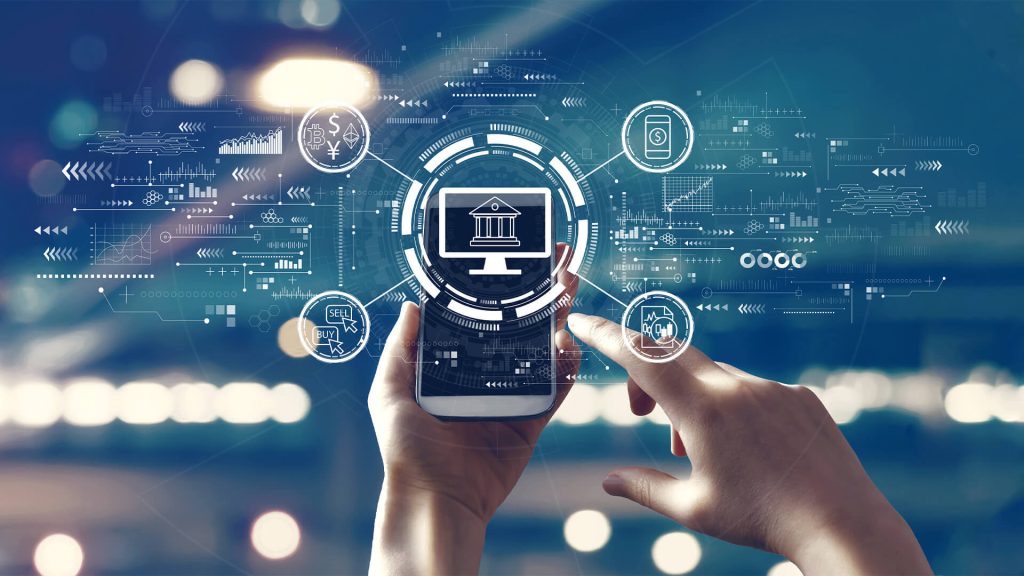Technological advancements continue to revolutionize various industries, and personal finance is no exception. The future of personal finance looks promising with emerging trends in financial technology in the US, bringing innovations that offer enhanced convenience, security, and control over financial decisions. As we delve deeper into this topic, we’ll explore various aspects that define this transformation.
With the integration of technology into finance, managing money has become a seamless experience. Financial institutions and fintech companies are leveraging modern technologies to provide value-added services to their customers. Let’s take a closer look at the specific trends and what they imply for the average user.
The rise of artificial intelligence and machine learning in finance

Artificial Intelligence (AI) and Machine Learning (ML) are pivotal in reshaping how consumers interact with their finances. These technologies enable personalized financial advice and more efficient management through apps and platforms. AI-driven chatbots and virtual assistants have made it easier for individuals to get immediate responses to their financial queries.
This shift is particularly significant in the context of personal finance management, offering tailored solutions based on user behavior and preferences. The advanced algorithms used in AI and ML are also enhancing fraud detection processes, ensuring a higher level of security for transactions. Financial technology companies are continuously investing in these areas to stay ahead in the game.
Automated savings and investment tools
One of the most beneficial applications of AI and ML in fintech includes automated savings and investment tools. Apps such as Acorns and Digit use sophisticated algorithms to analyze spending habits and help users save or invest spare change without requiring active input.
These tools make the financial planning process intuitive and accessible for people with varying levels of financial literacy. This level of automation aids in achieving financial goals systematically, which would otherwise require extensive knowledge and proactive involvement from the user.
Customized financial solutions
Moreover, Artificial Intelligence (AI) and Machine Learning (ML) are revolutionizing personal finance by offering highly customized financial solutions. Modern financial apps equipped with these technologies monitor users’ financial activities, spending patterns, and habits in real-time. By analyzing this data, they can provide tailored recommendations that align with each individual’s financial goals, whether it’s saving, investing, or budgeting more effectively.
This level of personalization not only helps users manage their money more efficiently but also identifies potential areas of improvement, offering actionable insights that can enhance their overall financial well-being. For instance, these apps might suggest better saving strategies, alert users about upcoming bills, or recommend investment opportunities based on risk tolerance.
The growth of blockchain and cryptocurrencies
Blockchain technology has been a game-changer in the financial landscape. It provides an exceptional level of transparency and security that traditional financial systems struggle to match. Cryptocurrencies, enabled by blockchain, are gaining traction, offering new ways to conduct transactions without the need for intermediaries such as banks. This decentralization is poised to redefine personal finance in significant ways.
The adoption of cryptocurrencies is higher than ever, with more people seeing them as legitimate investment opportunities and viable alternatives to traditional currencies. Financial technology companies are incorporating blockchain into their systems to enhance efficiency and reduce costs.
Enhanced security measures
Blockchain’s immutable nature makes it an ideal solution for secure and transparent transactions. Each transaction is permanently recorded on a public ledger, distributed across a network of computers, which makes it virtually impossible to manipulate or alter any single entry without affecting the entire chain.
This decentralized and unchangeable structure ensures a higher degree of trust and security, which is particularly important in personal finance management. Fintech companies are increasingly leveraging blockchain technology to develop innovative, secure payment systems and smart contracts.
These smart contracts are self-executing agreements where the terms are written into the code and automatically enforced once predetermined conditions are met. This not only eliminates the need for intermediaries but also ensures that transactions are completed efficiently and transparently.
Decentralized Finance (DeFi) platforms
Another noteworthy trend is the rise of Decentralized Finance (DeFi) platforms. These innovative platforms offer traditional financial services such as lending, borrowing, and trading, but without the need for centralized institutions like banks or financial intermediaries. Instead, DeFi operates on blockchain technology, allowing users to engage in peer-to-peer transactions with greater autonomy and security.
The growing DeFi ecosystem showcases the transformative potential of blockchain technology in reshaping personal finance. By eliminating barriers traditionally imposed by centralized institutions, DeFi platforms provide more inclusive financial services.
This not only makes financial services more accessible to underserved populations but also promotes a more equitable system where individuals can participate freely, regardless of geographic or economic status.
